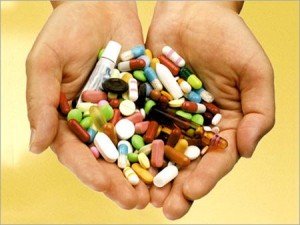Our Overuse of Pain Medications Threatens Our Health
Style Magazine Newswire | 6/29/2017, 12:47 p.m.
By Bob Moos/Southwest public affairs officer for the U.S. Centers for Medicare and Medicaid Services
Our nation faces its deadliest drug epidemic ever.
For years, Americans overestimated the benefits of opioids and underestimated the risks. Many people became regular users of these narcotic pain killers, often quite innocently, with a prescription from a doctor after surgery or an injury or as treatment for a chronic condition. Few thought their growing dependence on the pain killers would lead to addiction.
The numbers describe the magnitude of the crisis now confronting us:
n Since 1999, the amount of prescription opioids sold in this country has nearly quadrupled.
n Also since then, deaths from prescription opioids have more than quadrupled.
n Every day, 91 Americans die from an opioid overdose.
Older adults are especially affected. About 2.7 million Americans 50 or older abused pain killers in 2015 when they took them for reasons or in amounts beyond what their doctors prescribed. Also, people 65 and older have had sharp increases in opioid-related hospital stays and emergency room visits.
No one is suggesting that someone undergoing surgery, recovering from an injury or having major medical problems should be denied pain medications. But 236 million prescriptions were written for opioids last year in this country – enough to give every American adult a bottle of pain killers.
Combating the opioid epidemic has become a major federal priority. The Department of Health and Human Services is following a five-pronged strategy of stepping up public health monitoring of the problem, supporting research on pain and addiction, improving access to treatment, making overdose-reversing drugs more available, and promoting better ways to manage pain.
The Centers for Disease Control and Prevention last year published guidelines for clinicians prescribing opioids for chronic pain outside of active cancer treatment, palliative care and end-of-life care. The federal government is also providing states with nearly a half-billion dollars for prevention and treatment programs. Another half-billion dollars in grants will follow next year.
As important as the federal partnerships with states and communities will be in addressing this nationwide menace, stemming the increase in opioid-related deaths will demand the attention of all of us. That means not just government officials and health care professionals. It means anyone who may be needing some form of pain medication, as well as family members and friends.
An all-hands-on-deck response is the only way we’re going to get a handle on an epidemic that has taken 25 years to develop. Here’s what you can do yourself to fight it:
n If you’re due for surgery, visit with your physician beforehand to find out what you’ll be given for pain relief afterward and how long you should expect to be on it. If you continue to pop pills beyond that, talk with your doctor about the safest way to wean yourself off them.
n Be aware of the warning signs that you’re becoming too dependent on your medication. Do you have memory problems or trouble focusing on the task at hand? Are you forgoing important obligations? And probably the surest sign of all: Are you going to another doctor or elsewhere for more medication because your doctor won’t write a prescription for you any longer?
n If it’s possible, ask a family member or friend to help you through your recovery period and track your use of pain medication to make sure you’re following the recommended dosage. Remember that addiction is a medical matter and not a moral failing. It takes courage to seek help. Treatment can include counseling or medication or both.
Opioids have their pain-relieving benefits. But they’re also powerful drugs that, without proper precautions, can quickly send you down the slippery slope of addiction.
If you think you or a loved one may have become too dependent on opioids, consult with the prescribing physician. Also, the federal Substance Abuse and Mental Health Services Administration offers a confidential help line that can connect you with treatment services in your area. Call 1-800-662-4357 and begin to end this public health emergency.




